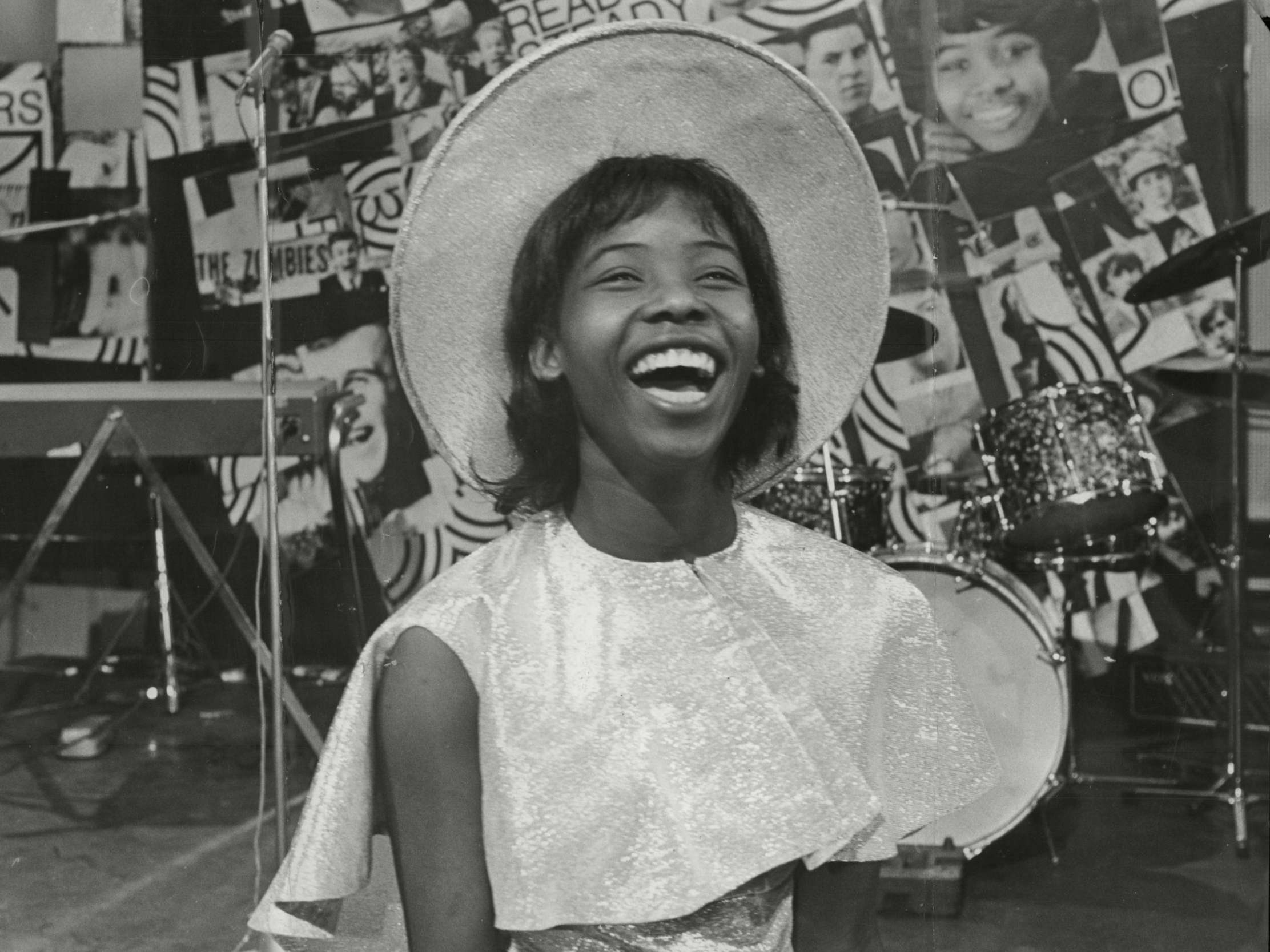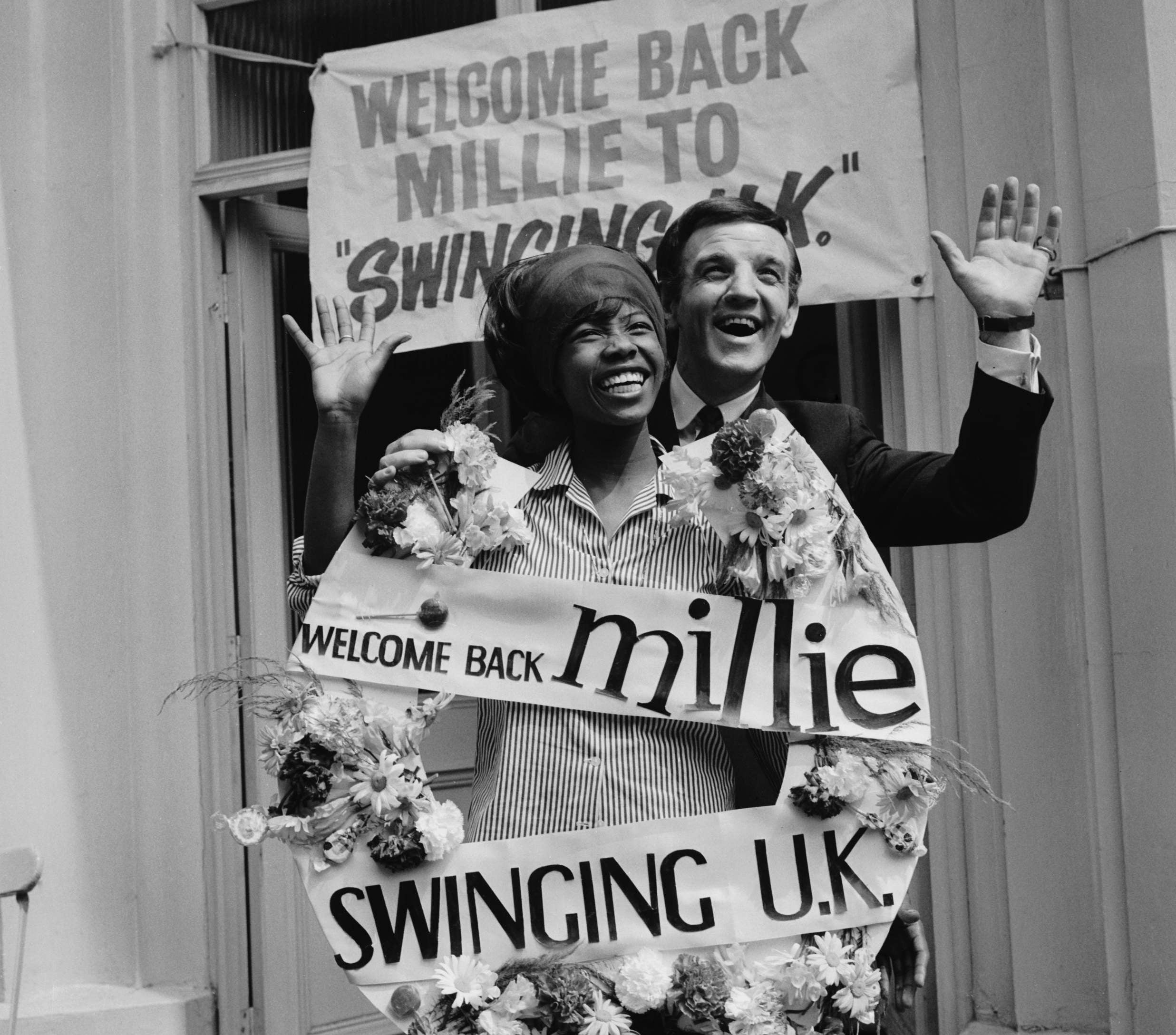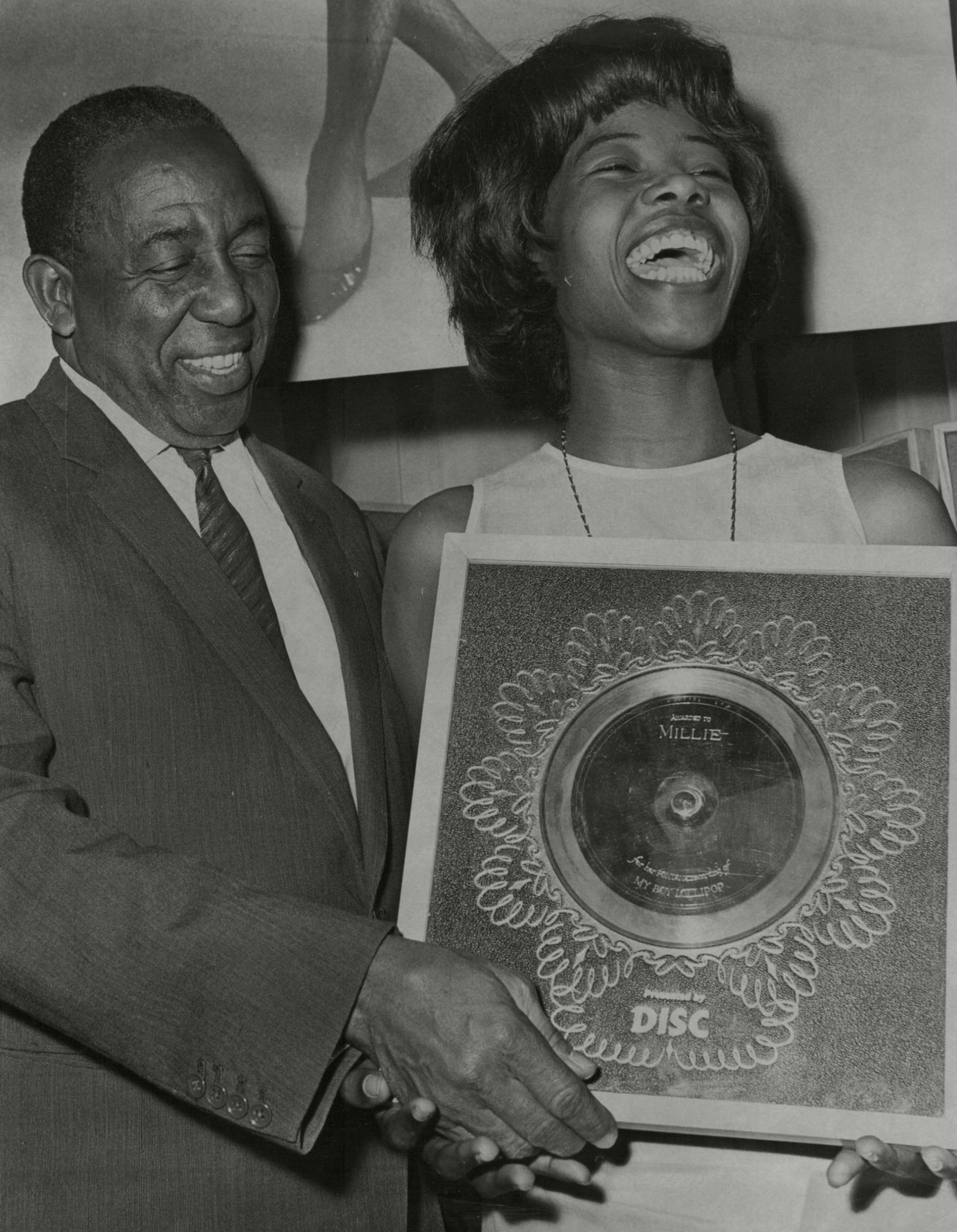Millie Small: Jamaican singer who brought ska to a worldwide audience
Her 1964 classic ‘My Boy Lollipop’ had a galvanising effect on pop music in the UK and US

Your support helps us to tell the story
From reproductive rights to climate change to Big Tech, The Independent is on the ground when the story is developing. Whether it's investigating the financials of Elon Musk's pro-Trump PAC or producing our latest documentary, 'The A Word', which shines a light on the American women fighting for reproductive rights, we know how important it is to parse out the facts from the messaging.
At such a critical moment in US history, we need reporters on the ground. Your donation allows us to keep sending journalists to speak to both sides of the story.
The Independent is trusted by Americans across the entire political spectrum. And unlike many other quality news outlets, we choose not to lock Americans out of our reporting and analysis with paywalls. We believe quality journalism should be available to everyone, paid for by those who can afford it.
Your support makes all the difference.Jamaican-born Millie Small, who recorded and performed simply as Millie, was the first artist to bring ska music out of the Caribbean and on to a global audience, starting in her adopted Britain and later in the US and beyond.
Discovered and managed by the London-born Jamaican-resident music producer Chris Blackwell, her teenage success, though fleeting, paved the way worldwide for first ska, then rocksteady and later reggae artists such as Bob Marley (another Blackwell discovery).
Although he said he hadn’t seen the reclusive singer in person for 12 years, Blackwell had been her guardian since she was a teenager, and it was he who revealed to the Jamaica Observer newspaper that she had died on 5 May in London after an apparent stroke. She was variously reported to be 72 or 73.
Small was a one-hit wonder: her lyrically shallow but catchy ska song “My Boy Lollipop” reached No 2 in 1964 on both the UK and the US Billboard charts.
“My Boy Lollipop” sold 7 million copies, still one of the best-selling ska or reggae songs of all time. But a black woman teenager with a near-falsetto voice singing electric Caribbean street music, rather than the gentle calypso of Harry Belafonte, was a new phenomenon during Britain’s Swinging Sixties dominated by The Beatles, The Rolling Stones, Motown and Bob Dylan.
When Small arrived in New York at John F Kennedy international airport from London in 1964, still in her teens, she received a rapturous welcome not far short of that given to The Beatles earlier that year. Thirty police officers had to bundle her through adoring, screaming and even dancing fans while newsmen, photographers and TV crews scrambled for footage or interviews.
Although her later recordings had only limited success, Small became an icon among Britain’s black community after she sang what is considered one of the country’s first black protest songs. In 1968 Enoch Powell, an extreme right-wing Conservative MP had made a fiery racist address that became known as the “rivers of blood” speech. He called for a stop to immigration from Britain’s Commonwealth countries, particularly Africa and the Caribbean, as well as the repatriation of those already in the UK. Referencing an ancient Roman quotation, he said he foresaw “the River Tiber foaming with much blood”.

The speech was still dividing Britons in 1970 when Millie got onstage during a packed Caribbean music concert at London’s Empire Pool (later renamed Wembley Arena). She sang a reggae song she called “Enoch Power”, which contained references to the Jamaica capital city of Kingston and to Powell’s former constituency, Wolverhampton.
“I arrived from Kingston Town/ Got to go to Wolverhampton, help my brothers do a thing/ They work all week to keep the British country running/ Weekend it’s reggae time and the neighbours find it funny/ So we all sing Enoch, Enoch, Enoch Power, Lord Lord.”
She had recorded the song as the B-side of a single, but it had an empowering effect on Caribbean immigrants who had sailed to the UK after the Second World War at the invitation of postwar governments to help rebuild the Commonwealth’s “mother country” after six years of war.
Millicent Dolly May Small was born 6 October in either 1946 or 1947 (the correct year is not confirmed) on a sugar plantation in the small spa town of Milk River. She was the youngest of 12 children of the plantation’s supervisor.
She was 12 when she won a high-profile talent contest, the Vere Johns Opportunity Hour. To pursue a singing career, she moved in with relatives in Kingston and recorded duets with some of the island’s top male ska musicians. Recording as Roy and Millie, she had a Jamaican hit with Roy Panton called “We’ll Meet”.

That brought her to the attention of Blackwell, who, with her mother’s blessing, became her legal guardian and took her to London to give her singing, diction and dancing lessons. In 1959 the 22-year-old Blackwell had founded a label in Jamaica, Island Records – the label that would later introduce Marley to the world.
Blackwell produced and in February 1964 released “My Boy Lollipop”, which had been written by Bobby Spencer (latterly of the Harlem-based group the Cadillacs) and first recorded in 1956 by a 14-year-old white girl from Coney Island called Barbie Gaye to little acclaim.
Jamaican guitar maestro Ernest Ranglin made a new arrangement for Small. Pirate radio stations began playing it round the clock, and soon the wide-grinning Millie was appearing on some of the biggest British TV shows.
By the early 1970s, Small disappeared from public view and was believed to have lived in Singapore and New Zealand before returning to London for the rest of her life.
In a rare interview in 1987, Millie Small told London’s Thames TV channel that she had once been penniless in the city, and that she and her infant daughter had lived for a time in youth hostel. “That’s all experience. It was great. I didn’t worry because I knew what I was doing. I saw how the other half live. It’s something I chose to do.”
She is survived by a daughter, Jaelee Small, a London-based singer.
Millie Small, singer, born 6 October 1946 or 1947, died 5 May 2020
© Washington Post
Join our commenting forum
Join thought-provoking conversations, follow other Independent readers and see their replies
Comments